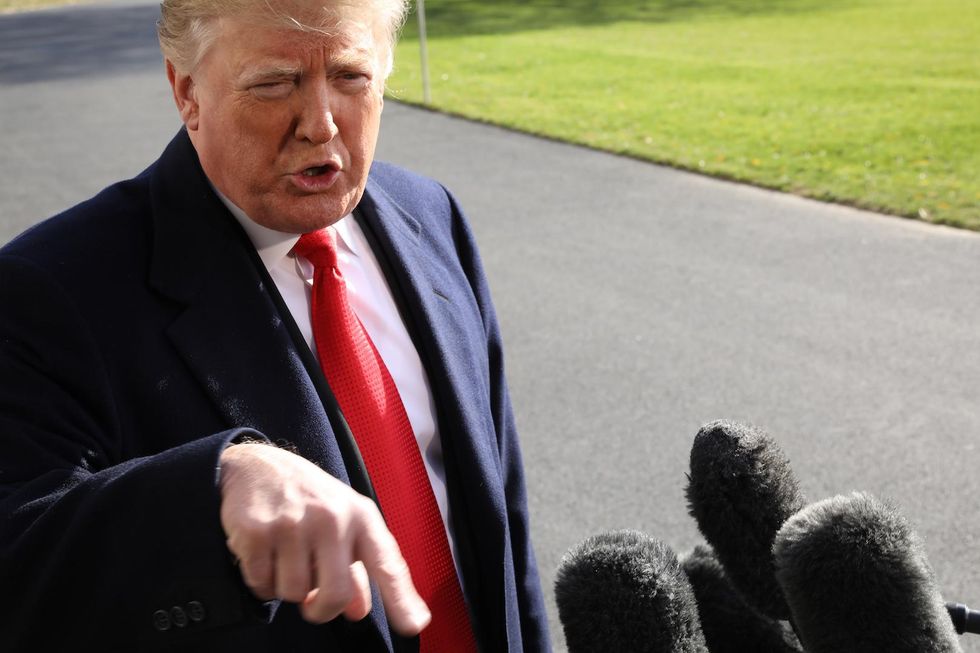
President Donald Trump answers questions from the press while departing the White House November 29, 2018 in Washington, DC. Win McNamee/Getty Images)

According to research by two academics who wrote for The Washington Post, President Donald Trump appeals to men who are secretly insecure about their manhood.
Put another way, the Post article (which is labeled as an "analysis") concluded that Trump voters have "fragile masculinity."
Here's how the authors, New York University psychology researchers Eric Knowles and Sarah DiMuccio, came to their conclusion: They Googled it.
No, really. From the Post:
"Measuring fragile masculinity poses a challenge. We could not simply do a poll of men, who might not honestly answer questions about their deepest insecurities. Instead, we relied on Google Trends, which measures the popularity of Google search terms. As Seth Stephens-Davidowitz has argued, people are often at their least guarded when they seek answers from the internet. Researchers have already used Google search patterns to estimate levels of racial prejudice in different parts of the country. We sought to do the same with fragile masculinity."
The Post article defines fragile masculinity as a state of persistent worry by a man that he is falling short of an "unforgiving standard of maleness." According to Knowles and DiMuccio, "the political process provides a way that fragile men can reaffirm their masculinity."
The researchers looked at areas of the country that voted overwhelmingly for Trump in 2016, and for Republicans during 2018 midterm elections, and found a higher volume of search terms like "erectile dysfunction," "penis size," and "how to get girls."
How do they know this is all about Trump? The researchers said that the uptick in those "fragile masculinity" search terms started in 2016, and didn't exist in previous years dating back to 2008.
Not everyone bought in to the idea that such a sweeping conclusion about male Trump voters could be reached by analyzing Google searches.
"I didn't vote for Trump, but if you think overlaying voting trends with Google searches for 'penis size' is credible research worth publishing in one of the nation's biggest newspapers...you're being insulting and patronizing and making political divisions worse," wrote Weekly Standard writer Mark Hemingway.
"When I think about putting 'country over party,' that doesn't include obviously dodgy 'research and analysis' suggesting my political opponents have small penises," he concluded.
(H/T NewsBusters)